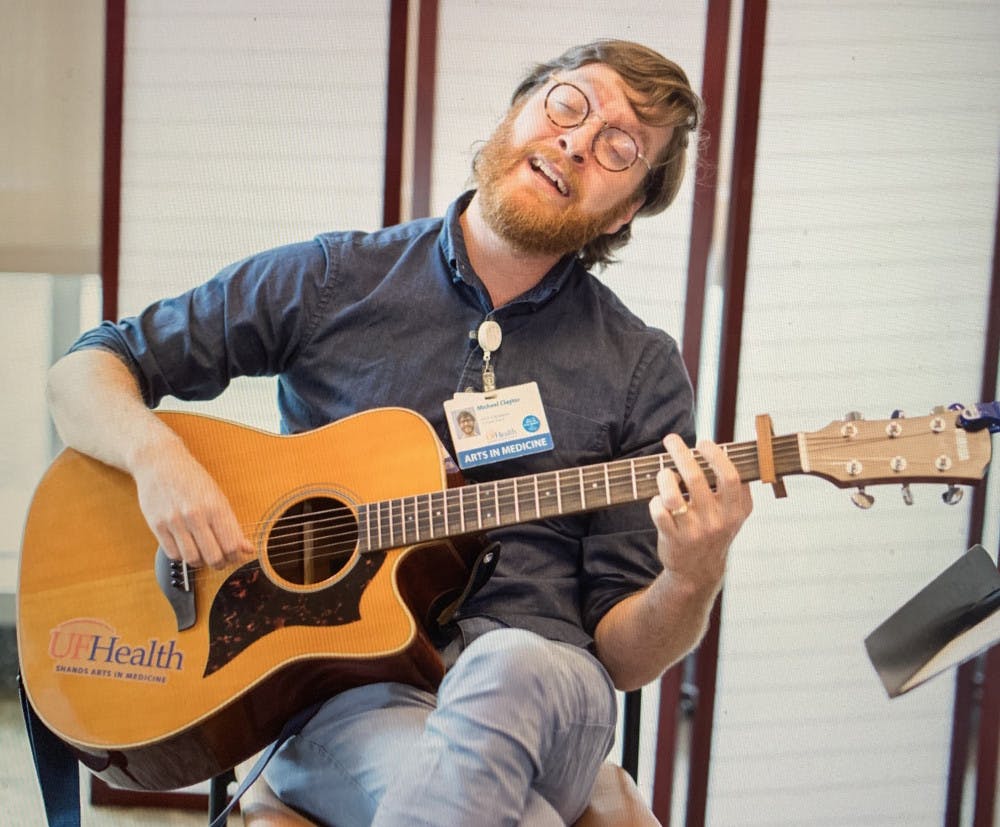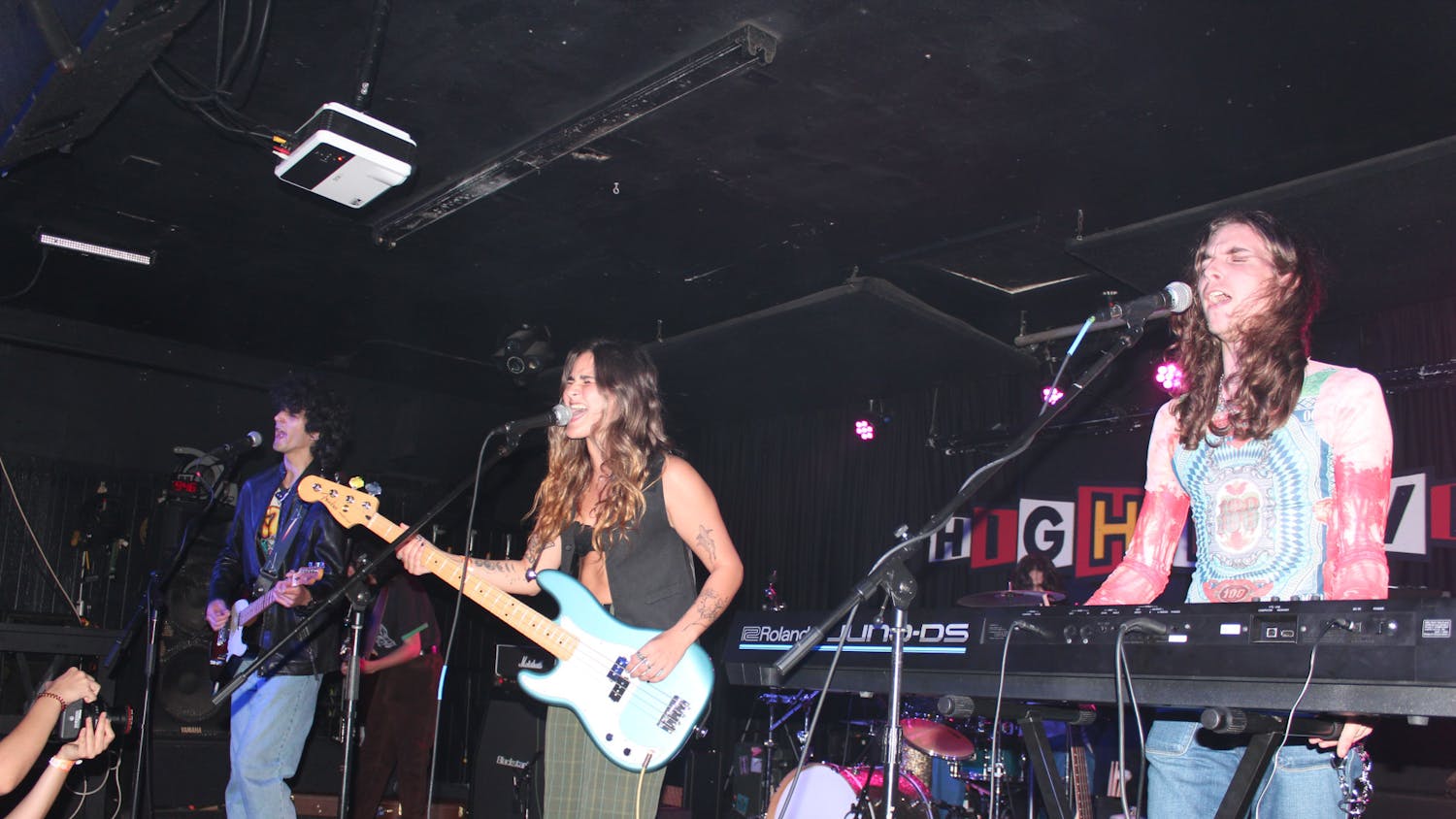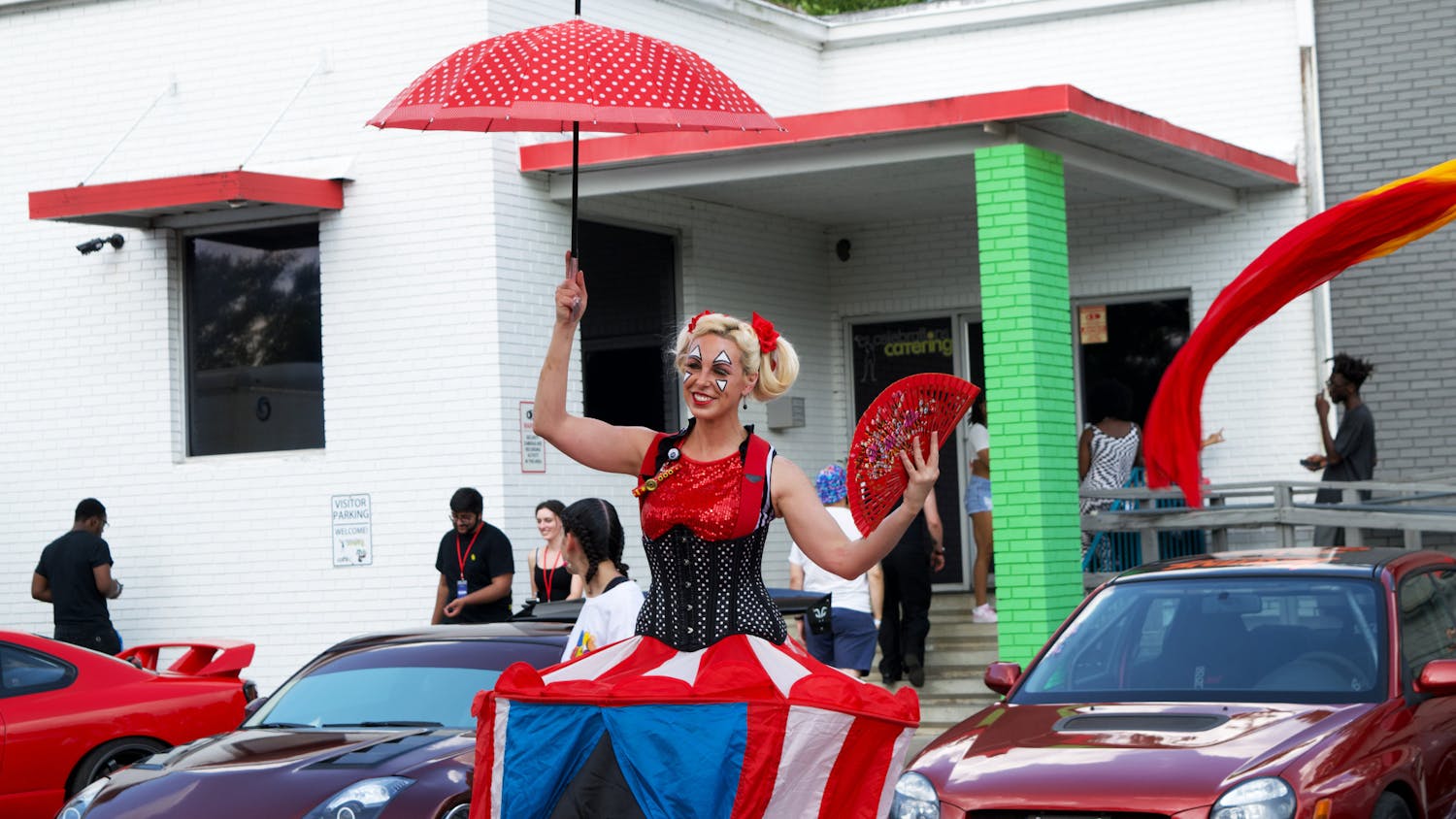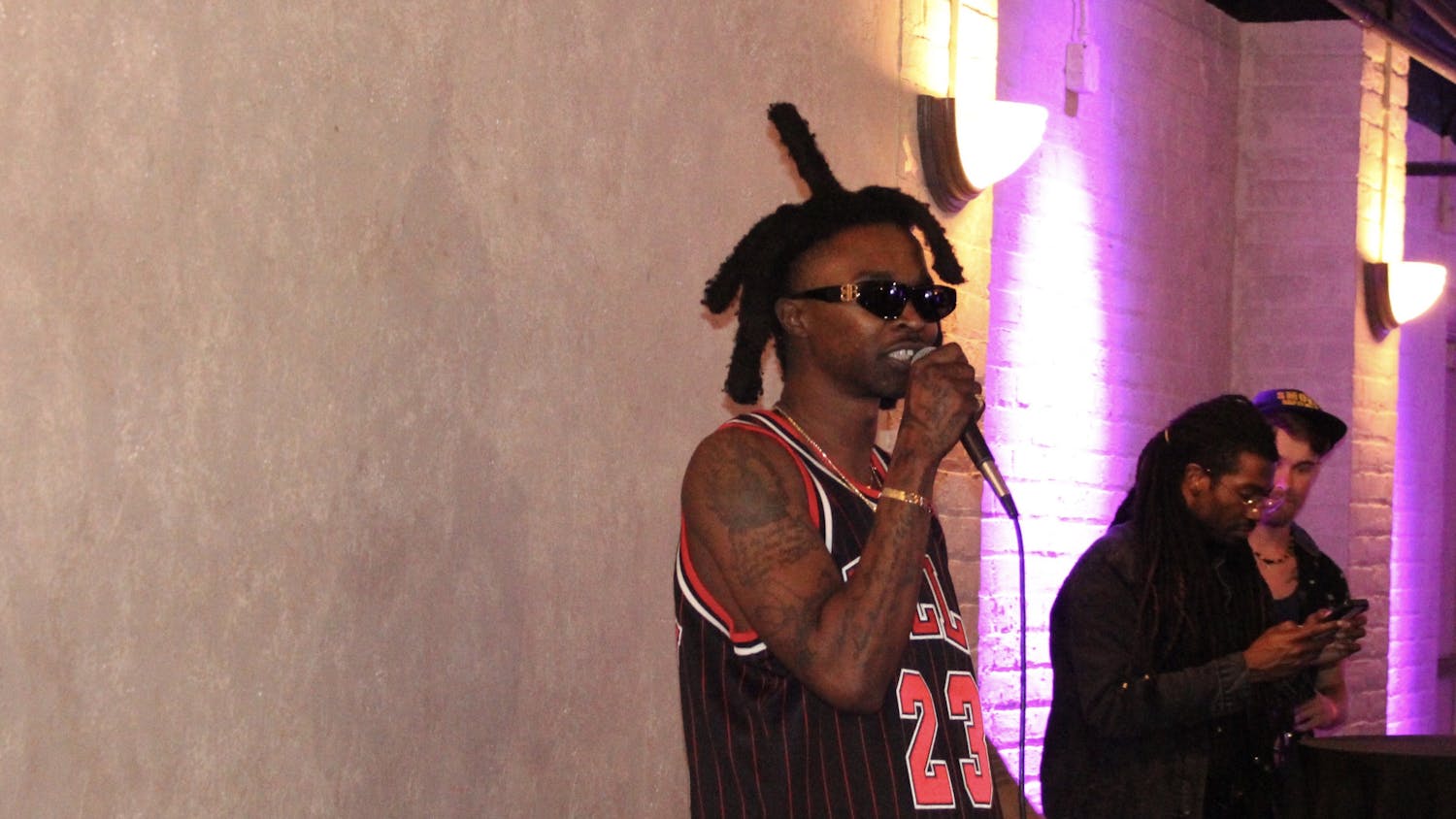Music has always been a pillar in Marison Siqueira’s life.
Less than a month since his virtual graduation, he remembers listening to music while heading to and from home, traveling between classes and hanging out with friends.
Now, at home with more time on his hands than ever, the 22-year-old UF grad finds he’s just not rushing to listen to music anymore.
“I don’t know if it’s because there’s really nothing new coming or if I’m just starting to become more indifferent,” he said.
Since his self-quarantine began, Siqueira has filled the time he used to spend listening to music by playing video games. He thinks it’s because the pandemic has created a need to actively engage with the world.
The coronavirus pandemic has impacted the role music plays in the day-to-day lives of many, and everyone has a story.
UF Health Shands Arts in Medicine
From the moment patients arrive at UF Health Shands Hospital, they are stripped of control. Some find their day-to-day clothes replaced with cloth hospital gowns and a cocoon of plush blankets. Their future is uncertain. But at the request of patients or nurses, they participate in one-on-one activities with musicians, visual artists, theatre artists, dancers or integrative therapist practitioners.
Tina Mullen, director of Shands Arts in Medicine, said one of their purposes is to help the patients regain their sense of control.
“A lot of the core value of our work is to try and give someone that sense of control, that sense of self back by using the arts,” she said.
Since March 18, the Musicians in Residence, professional musicians for the UF Health Shands Arts in Medicine Program, have hosted Facebook Live all-request concerts every Friday. In the “‘Stump the Musician” series, the musicians separately record and post the requested songs they didn’t know after they learn them.
In every hospital room, the patients have access to an iPad, and for the last six weeks, have reconnected with the musicians through Zoom Video Communications. While the musicians cannot sing beside patients’ beds, they do have access to microphones and their studios.
Mullen said that for some patients, especially those whose hospital room becomes like a second home, music is transformative. She said that many patients appear closed off. Their eyes are pointed downward and their arms are drawn. Once music enters their walls, Mullen said even their bodies open.
“You can watch someone's face change over the course of listening to the music and it's remarkable,” she said.
In 2018, Shands patient Rakeem Smith released two singles from the hospital. Before he worked with Musician in Residence Michael Claytor, Mullen said he often basked in darkness with the blankets over his face. Once he stopped talking to his nurses and family, they requested a musician’s aid.
Claytor soon discovered that Smith wanted to write a song and had lines in mind. Together, the two wrote the songs. Claytor recorded parts of the song at home and brought in a mobile recording studio to the hospital so Smith could listen. Smith rapped and Claytor sang. Through the process, Mullen said Smith became visibly happier.
“Even the nursing staff and his family would comment, you know, this is the guy they used to know,” Mullen said. “He was back. He was laughing. He was sitting up in his bed, he was talking to people.”
With his mom, Smith heard his songs shortly before he passed. According to Mullen, Claytor crafting the song with Michael was worth it to see the pride shining on his mother’s face.
“We were able to give them that gift of watching Rakeem in probably one of his happier moments,” Mullen said.
For this reason, Claytor said that his job can be tragic.
“Investing so much into people who are in such dire health situations can be really emotionally taxing too, because as they go up and down, suddenly you're invested in them too, and it can be hard to see people you know struggle,” Claytor said.
Regardless, creating and playing music for patients is fulfilling for Claytor.
“There are many more people that provide all kinds of amazing care for these patients in the hospital,” he said. “I'm like one small piece in their care at the hospital, but it means a lot to be able to do that.”
From High Dive and other stages to hospital rooms, Claytor said singing for patients is a space for conversation and stories.
“When you're one on one with a patient, it's a lot more vulnerable for both the artist and the person listening,” he said. “One on one is really more about connection.”
A lot of the time, Claytor said the patients burst into tears. While the songs are cathartic, Claytor said he is not a therapist, but a Musician in Residence, and avoids crossing boundaries.
Rather than taking their vitals or performing a procedure, the musicians seek to create change. Claytor said the music can lift them from a rut and place of misery.
“Something about music is able to just kind of transport you to another place,” he said.
A Blessing in Disguise
TJ North was getting a bit sick of performing.
While he loved the thrill of feeding off the energy of the crowd, he said the constant, back-to-back performances left him and his Gainesville band Kamasutra no time to actually create.
Throughout the school year, the recently graduated 22-year-old North lived in a house with his bandmates. The house served as a hub for their other friends to come through and hang out.
But when North was diagnosed with COVID-19 on March 17, the crowd in his apartment disappeared just as quickly as the crowds at local music venues had. North felt minimal symptoms from the virus, though, and suddenly there was nothing but time for creating, and that’s exactly what the band did. Essentially locked inside their house, they crafted a full album over the course of two months.
“It’s given us a huge boost in creativity,” he said of the pandemic.
He said that much of the album’s sound was influenced by the four band members spending hours playing around with synthesizers in the house. A song that North wrote two years ago about being inside his house also became appropriate for the album in the wake of the pandemic.
Now that the record is done, he’s been looking to acts across the music industry to see how they’re promoting and staying in the public eye. However, the pandemic has created some logistical challenges to overcome.
“We need to do a photo shoot,” he said. “But how do we do a photo shoot when we’re all locked inside of our houses?”
North said he can’t wait until the band gets to perform together again and feel the intimacy that a live show brings. When he looks at the last several months in totality, from contracting COVID-19, to creating a new body of work, to being isolated for months on end, he said he doesn’t have any regrets.
“It was worth it,” he said.
Looking Ahead
Marison Siqueira isn’t sure what’s next, but he hopes music is a part of whatever it is. He’s looking for a job now, which will hopefully break him out of his pattern of not listening to new music.
“If I’m in a car, I’m listening to my own music, one thousand percent,” he said.
He misses the one-on-one relationships he had between him and a piece of music, as well as the camaraderie of a show. The joining of the personal and interpersonal aspects of music is what makes it so valuable to him.
“For me, it’s all of it,” he said. “That’s why I love music so much."
Contact Katie Delk at kdelk@alligator.org and follow her Twitter at @katie_delk. Contact Thomas Holton at tholton@alligator.org and follow his Twitter at @thomas__holton.
Live on the Arts in Medicine Facebook all-request concert, Musician in Residence Michael Claytor sings and strums his guitar.

Katie Delk is a sophomore with a journalism major and an anthropology minor. For the Avenue, she writes about music, culture and the environment. When she is not writing, she is outside with the trees, reading a fantasy book or listening to Beach House.






